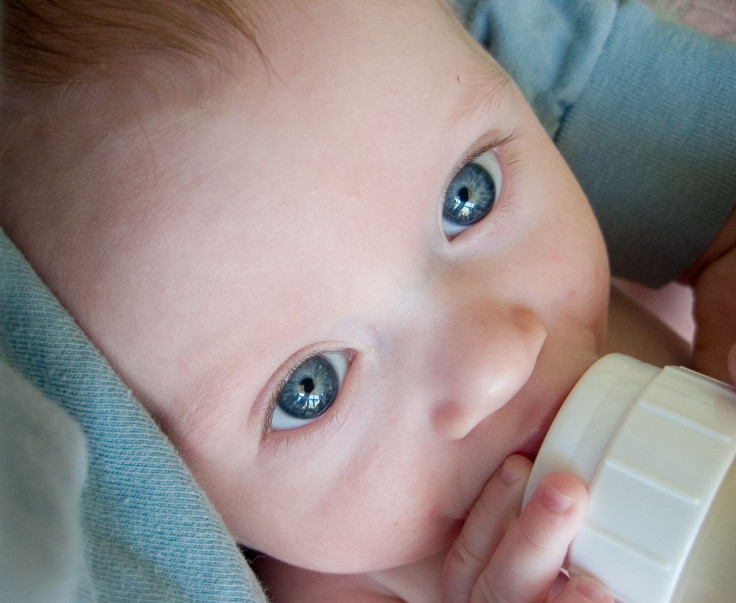Longer Period of Infant Formula Feeding May Increase Leukemia Risk

The longer babies are fed formula, the greater their risk for pediatric acute lymphoblastic leukemia, a new study suggests.
Researchers found that each additional month a baby was kept on formula was associated with a 16 percent increase in the relative risk for acute lymphoblastic leukemia when compared to a control group. Researchers also found that every additional month of delay in the introduction of solid foods increased the risk for this type of cancer by 14 percent.
However, researchers stressed that the study only found an association between prolonged bottle feeding and acute lymphoblastic leukemia, and that the study did not prove causation.
Acute lymphoblastic leukemia or ALL is a type of cancer of blood and bone marrow, the spongy tissue inside bones where blood cells are produced. It is an aggressive cancer affecting the white blood cells called lymphocytes. The disease is the most common malignancy in children between the ages of 3 and 7. Many previous studies have found a link between feeding practices and its development, researchers said.
Researchers from the University of Texas at Austin compared 142 children with the cancer with a matched control group of 284 children. The acute lymphoblastic leukemia patients ranged in age from under a year to 14 years old.
They found that children's risk for this type of leukemia seemed to increase the longer they were fed formula and not solid foods. Lead researcher Jeremy Schraw, a graduate student at The University of Texas at Austin, who presented the findings at the 11th Annual AACR International Conference on Frontiers in Cancer Prevention Research, said the findings suggested that the benefits that breast milk has on babies' developing immune system may help explain their findings.
"For every month that a child was fed formula, taking into account other feeding practices, we found that the risk for this type of cancer was higher," Schraw said in a statement. "If a baby is fed only formula, he or she will not be getting any immune factors from the mother, which could be leading to this greater risk."
Researchers also found that children diagnosed with the leukemia also began eating solid foods much later than children who did not have the cancer. A significantly greater number of children with acute lymphoblastic leukemia were fed formula for a prolonged period of time and had mothers who smoked during their pregnancy.
Studies presented at medical meetings are considered preliminary until published in a peer-reviewed journal.
Published by Medicaldaily.com



























